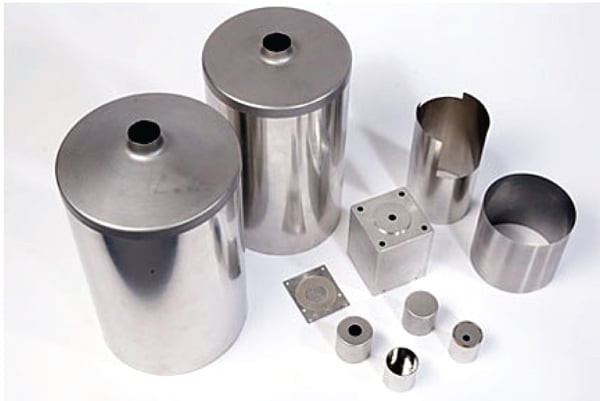Introduction to Magnetic Shields
Magnetic shields are devices that protect against harmful radiation by deflecting or absorbing it. They are used in a variety of industries, including aerospace, medical, and telecommunications. The importance of magnetic shields cannot be overstated, as they play a crucial role in protecting us from the harmful effects of radiation.
Radiation is all around us, and it can come from a variety of sources, including the sun, cosmic rays, and man-made sources such as X-rays and nuclear power plants. While some forms of radiation are harmless, others can cause serious health problems such as cancer and genetic mutations. Magnetic shields help to protect us from these harmful forms of radiation by deflecting or absorbing them.
What is a Magnetic Shield?
A magnetic shield is a device that uses magnetic fields to deflect or absorb radiation. It is typically made up of layers of magnetic materials such as iron or nickel, which create a barrier that prevents radiation from passing through. The strength of the magnetic field determines how effective the shield is at deflecting or absorbing radiation.
Magnetic shields can be made in a variety of shapes and sizes depending on their intended use. For example, they can be small enough to fit inside electronic devices or large enough to cover entire buildings. The materials used to make magnetic shields can also vary depending on their intended use.
How Do Magnetic Shields Work?
Magnetic shields work by creating a magnetic field that deflects or absorbs radiation. When radiation comes into contact with the shield, it interacts with the magnetic field and is either deflected away from the shield or absorbed by it.
The strength of the magnetic field determines how effective the shield is at deflecting or absorbing radiation. A stronger magnetic field will be more effective at deflecting or absorbing radiation than a weaker one.
Types of Magnetic Shields
There are several different types of magnetic shields, each with its own strengths and weaknesses. The most common types of magnetic shields include:
– Passive magnetic shields: These shields are made up of layers of magnetic materials that create a barrier that prevents radiation from passing through. They are typically used in electronic devices and medical equipment.
– Active magnetic shields: These shields use an external power source to create a magnetic field that deflects or absorbs radiation. They are typically used in space exploration and other high-risk environments.
– Superconducting magnetic shields: These shields use superconducting materials to create a strong magnetic field that is highly effective at deflecting or absorbing radiation. They are typically used in medical equipment and particle accelerators.
Advantages of Magnetic Shields
The benefits of using magnetic shields are numerous. They can protect against harmful radiation, improve the performance of electronic devices, and reduce the risk of equipment failure. Magnetic shields are also relatively inexpensive and easy to manufacture, making them a cost-effective solution for many industries.
Examples of industries that use magnetic shields include aerospace, medical, telecommunications, and particle physics. In the aerospace industry, magnetic shields are used to protect astronauts from harmful radiation during space missions. In the medical industry, they are used in MRI machines to improve image quality and reduce the risk of equipment failure.
Disadvantages of Magnetic Shields
While there are many benefits to using magnetic shields, there are also some limitations to their use. For example, they may not be effective against all types of radiation, and they can have negative effects on equipment if not properly designed or installed.
Possible negative effects on equipment include interference with electronic devices and reduced performance in some cases. Additionally, some types of magnetic shields can be heavy and bulky, making them difficult to install in certain environments.
Applications of Magnetic Shields
Magnetic shields have a wide range of applications in various industries. In the aerospace industry, they are used to protect astronauts from harmful radiation during space missions. In the medical industry, they are used in MRI machines to improve image quality and reduce the risk of equipment failure.
Magnetic shields are also used in telecommunications to protect against electromagnetic interference and improve signal quality. In particle physics, they are used in particle accelerators to protect against radiation and improve the accuracy of experiments.
The Future of Magnetic Shields
The future of magnetic shield technology is promising, with potential advancements in materials science and engineering leading to more effective and efficient shields. There is also the possibility of using magnetic shields in new industries, such as renewable energy and transportation.
Advancements in superconducting materials could lead to the development of more powerful magnetic shields that are highly effective at deflecting or absorbing radiation. Additionally, new manufacturing techniques could make magnetic shields more affordable and easier to produce.
The Impact of Magnetic Shields on Human Health
Magnetic shields play a crucial role in protecting human health by deflecting or absorbing harmful radiation. Exposure to harmful radiation can cause serious health problems such as cancer and genetic mutations, making the use of magnetic shields essential in many industries.
However, there is still much research to be done on the long-term effects of exposure to radiation, particularly in high-risk environments such as space exploration. It is important for researchers to continue studying the effects of radiation on human health and developing new technologies to protect against it.
Conclusion
In conclusion, magnetic shields are an essential technology that plays a crucial role in protecting us from harmful radiation. They are used in a variety of industries, including aerospace, medical, telecommunications, and particle physics.
While there are some limitations to their use, the benefits of using magnetic shields are numerous. Advancements in materials science and engineering hold promise for the future of magnetic shield technology, with potential applications in new industries such as renewable energy and transportation.
Overall, the importance of magnetic shields cannot be overstated, as they play a crucial role in protecting human health and improving the performance of electronic devices.







